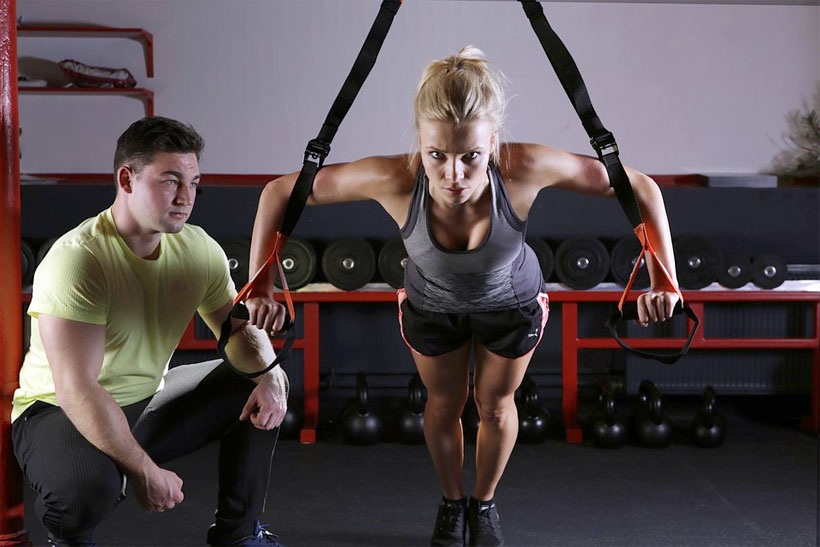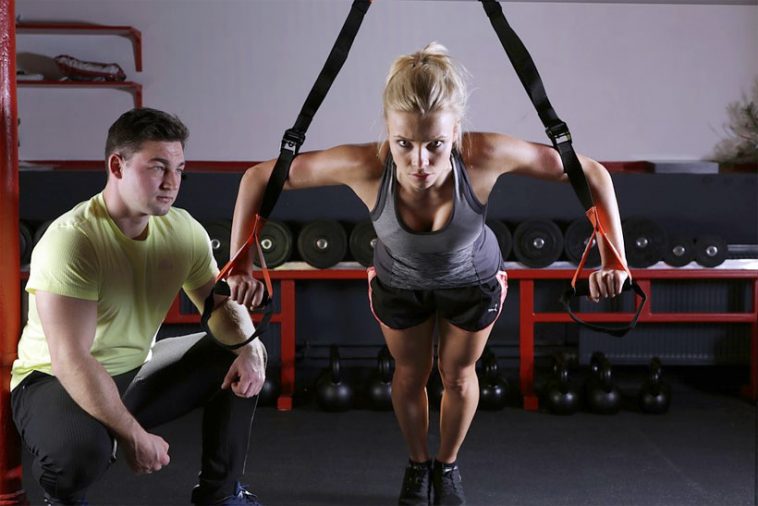- Like
- SHARE
- Digg
- Del
- Tumblr
- VKontakte
- Flattr
- Buffer
- Love This
- Save
- Odnoklassniki
- Meneame
- Blogger
- Amazon
- Yahoo Mail
- Gmail
- AOL
- Newsvine
- HackerNews
- Evernote
- MySpace
- Mail.ru
- Viadeo
- Line
- Comments
- Yummly
- SMS
- Viber
- Telegram
- JOIN
- Skype
- Facebook Messenger
- Kakao
- LiveJournal
- Yammer
- Edgar
- Fintel
- Mix
- Instapaper
- Copy Link
 Many of us have set a goal to be healthy, look good, feel great and have a perfect body that we’re proud of. Proper diet and exercise remain the surest ways to achieve this.
Many of us have set a goal to be healthy, look good, feel great and have a perfect body that we’re proud of. Proper diet and exercise remain the surest ways to achieve this.
What would your reaction be if you came across a particular type of exercise that would improve your cardiac health, strengthen your bones, improve balance and coordination, and help you maintain a healthy body weight?
Many studies have confirmed the effectiveness of resistance training and its benefits at all ages.
This form of exercise may be particularly relevant to patients suffering from certain diseases such as arthritis, diabetes and other cardiovascular diseases.
Resistance training is a type of physical exercise that employs resistance to induce muscular contraction to build strength, anaerobic endurance and size of skeletal muscles.
When carried out correctly, strength training can provide significant benefits and improvement in overall health and well-being of an individual including increase in bone, tendon, muscle, enhanced joint function, ligaments strength, increased fitness, increased bone density, reduces bone/joint injury, improves metabolism and enhances the proper function of the cardiovascular system.
Resistance training is focused on power and is anaerobic.
Since 1988, the American college of sports medicine, a governing body for exercise in the United States, recommends resistance training for all Americans because of its numerous benefits.
Resistance training is a type of exercise that causes muscle contraction against an external resistance with the aim of increasing strength, mass and endurance.
Weightlifting is a good example of resistance exercise. Resistance training damages muscle cells. Once these muscle cells regenerate, they grow bigger.
Resistance training is simply a form of training in which you work against some types of force that resist movements, besides weight lifting, other forms of resistance exercise may include dragging sledge, running with parachutes and movements in water.
The fact that muscles resist when undergoing specific activities is considered a basis of these exercises. When the muscles go through certain situations, they resist, and this resistance is the basis of resistance training exercises. When this kind of resistance is repeated, the muscles become stronger.
Basic Concepts of Resistance Training
Strength training main components include:
Program
Your fitness routine composed of different exercise types such as strength training, flexibility training, aerobic training or balance exercises.
Weight
You can use various weights or other types of resistance, for example a 10 pounds hand weight or body weight, fixed weight or rubber band.
Exercise
A specific movement targeting a single muscle or a group of muscles such as the bench press.
Repetitions or Reps
Number of times a movement is repeated during a set.
Sets
A group of repetitions executed without taking any rest.
Rest
Strength training is an intense workout where you reach your limits on each limit. You need to rest between the sets to complete your workout.
Progressive Overload Principle
In order to build muscle, you must focus on getting stronger every workout by performing more repetitions or lifting more weight, while maintaining a good technique.
Recovery
You have to recover after an intense workout to let your muscles repair and adapt. In general, you must rest the muscle or muscle group at least 48 hours before working it out again.
Types of Resistance Training
There are different types of resistance training exercises. It may involve contracting the muscles against a non-moving object; this is called isometric resistance as observed in push-ups.
Resistance training can also be Isotonic which involves contracting the muscles through a range of motion as seen in weightlifting. Below are the common types of resistance training:
Bodyweight
This uses the body weight to induce muscle contraction. Squats, push-ups and pull-ups are good examples.
Free Weight
This induces contraction of muscles through the use of dumbbells and barbells. This equipment increases the strain placed on muscles thus forcing contraction.
Weight Machines
This equipment are found in most gyms. It provides a safe and alternative method to induce muscle contraction.
Resistance Bands
These are rubbers that provide resistance when stretched. This tool is flexible, portable and can adapt to most workout routines.
Importance of Strength Training in Older Adults
Resistance training is vital for senior citizens as it helps combat loss of muscle mass and strength. Increase in age makes people inactive as the adapt to a more sedentary life.
Lots of people spend most of their time on office chairs in front of computers with little or no time for any form of exercise or physical activity.
Studies have shown that inactive adults experience a loss of 3%-8% of muscle mass every decade accompanied by a reduction in resting metabolic rate and accumulation of fats.
Lean muscle mass tends to diminish naturally with age. And resistance training is useful to maintain and combat the loss of muscle mass by increasing muscular fitness.
Benefits of Resistance Training
- Research showed that resistance training can prevent and manage type 2 diabetes by decreasing visceral fat, reduce HBA1C, increase the density of glucose transporter type 4, and improve insulin sensitivity.
- Resistance training can enhance cardiovascular health by reducing resting blood pressure, decreasing low-density lipoprotein cholesterol and triglycerides, and increasing high-density lipoprotein cholesterol.
- It reverses or slows down aging by producing growth hormone. Studies have shown resistance training to cause an acute rise in growth hormone levels. Many stress on the body, including both mental and physical can cause an acute increase in growth hormone level. However, these levels tend to return to normal within a half hour of ceasing resistance training.
- Resistance exercise enhances the skeletal system by increasing bone density, improving muscle strength, tone, bone, ligaments and joint function. The effect of this reduces the risk of bone diseases such as osteoporosis, reduces injury, prevent loss of muscle tissues especially in old persons, increases stamina, maintain flexibility, balance and good posture.
- Besides improving strength, resistance training also improves mental health (Resistance training has been shown to improve cognitive health). It helps increase self-esteem, boost confidence and mood, reduces stress, depression, anxiety and prevent sleep disorder such as sleep apnea and insomnia.
- Resistance training is useful in maintaining a healthy weight and losing body fat. It increases the body’s metabolism and facilitates burning of calories. Research has shown that ten weeks of resistance training to increase lean weight by 1.4kg, increase the resting metabolic rate by 7%, and reduce body fat by 1.8kg. Resistance training helps increase body muscles and reduction in fats.
The Bottom Line
Resistance training is vital and should be incorporated into our workout routines. Besides the numerous benefits such as increased strength, healthy weight and disease prevention, this type of exercise can be easily done, is accessible, cheap and flexible.
About Jason Spencer
Jason Spencer has a tremendous enthusiasm for all facets of health, fitness and physical performance that stems from an athletic lifestyle from childhood. Jason was fortunate enough to compete in collegiate football and learned to love the challenges that physical activity placed on the body. As Jason progressed through his higher education and became increasingly aware of how science is applied to physical activity and how it reveals the benefits of exercise, he realized very quickly that he wanted to pursue a career that gives him the opportunity to teach others to compete, challenge, and push themselves towards something more valuable to them than anything else; health, fitness and self worth. Being a fitness professional allows Jason to do this for them and he is always incredibly grateful for that. Jason has a Bachelor of Science degree in Neuroscience from Muhlenberg College in Allentown, PA. Neuroscience and his acquired knowledge of the nervous system and muscle stimulation techniques has been extremely instrumental towards building a unique ability and feel for training the body for optimal form and function. As a personal trainer he is certified with ACSM (American College of Sports Medicine). He's also a strength & conditioning specialist with NSCA (National Strength & Conditioning Association). He has additional certifications in both kettlebell principles & techniques (Equinox), and Flexibility & Corrective Exercise (Swedish Institute of Health Sciences in NY). Jason has worked as a trainer and conditioning specialist in a variety of fitness facilities over the years such as: LA Fitness in Piscataway, NJ, the YMCA in Metuchen, NJ, and Equinox Fitness Clubs in New York, NY. He also does private in-home sessions all over the Manhattan area.

